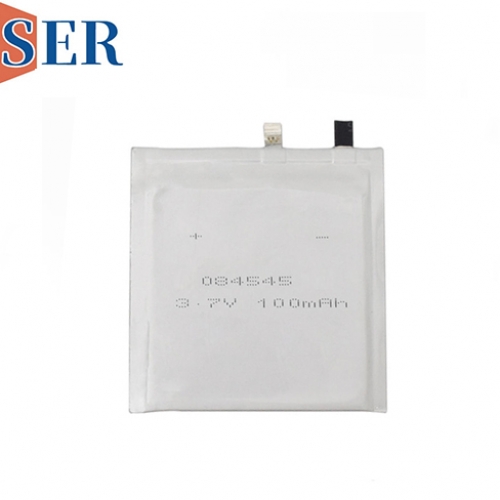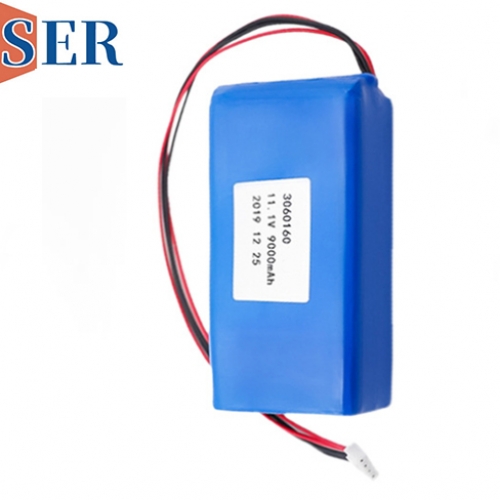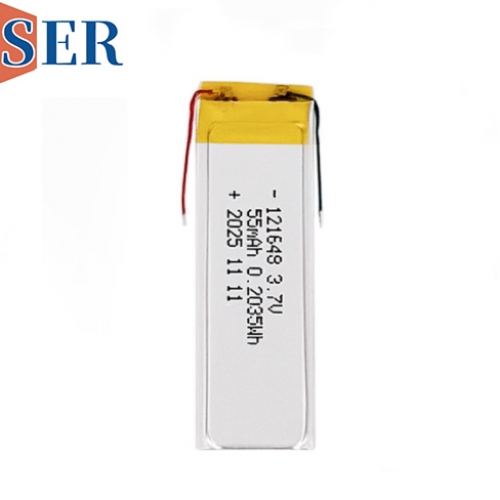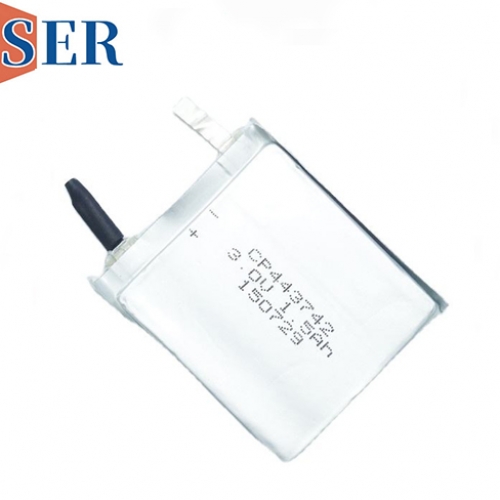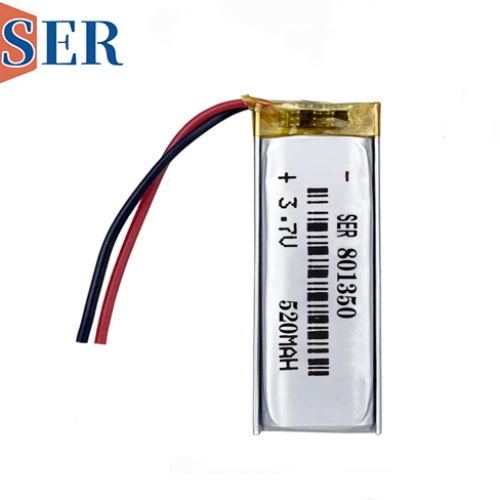Non-Magnetic Li-Polymer Batteries LP400910
Non-Magnetic Li-Polymer Batteries LP400910: A Journey of Innovation and Safety
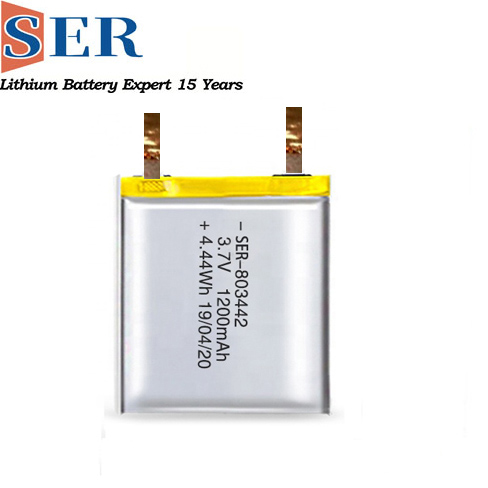
In the ever-evolving landscape of electronic devices, the demand for lightweight, high-performance, and, importantly, non-interfering power sources has never been greater. One particular area where this need is acutely felt is in devices equipped with magnetic sensors, such as compasses, which are vital components in navigation systems, drones, smartphones, and even wearable technology. The introduction of non-magnetic Li-polymer batteries has revolutionized this field, ensuring seamless integration and reliable performance without compromising on safety or capacity. This article delves into the intricacies of non-magnetic battery technology, highlighting the achievements of SER Battery Company, a pioneer in this domain.
Introduction
The rise of portable electronics has sparked a relentless pursuit for more efficient and compatible energy storage solutions. Lithium-ion batteries, and particularly their polymer variants (Li-polymer), have emerged as the go-to choice due to their high energy density, lightweight nature, and flexibility in design. However, a significant challenge arises when these batteries are used in proximity to magnetic sensors, as their inherent ferromagnetic components can cause interference, distorting readings and compromising the accuracy of devices that rely on precise magnetic measurements.
This challenge has spurred the development of non-magnetic Li-polymer batteries, a technological breakthrough that eliminates the presence of ferromagnetic materials, allowing for seamless coexistence with magnetic sensors. SER Battery Company, with its years of expertise and dedication to innovation, has been at the forefront of this endeavor, producing high-quality, non-magnetic batteries that meet the demands of a diverse range of industries.
Understanding Non-Magnetic Materials
At the heart of non-magnetic Li-polymer batteries lies the elimination of ferromagnetic elements. Ferromagnetic materials, such as iron, nickel, and cobalt in their natural states, exhibit strong magnetic properties, meaning they can be easily magnetized and retain their magnetism even after being removed from a magnetic field. In contrast, non-magnetic materials, including copper, aluminum, and certain forms of treated cobalt compounds, do not possess these properties, making them ideal for use in applications where magnetic interference must be minimized.
The Importance of Non-Magnetic Batteries
The significance of non-magnetic batteries cannot be overstated, particularly in industries where accurate magnetic readings are crucial. For instance, in the aerospace industry, drones and unmanned aerial vehicles (UAVs) rely heavily on compasses for navigation. Even the slightest magnetic disturbance can lead to significant deviations in flight paths, posing a significant safety risk. Similarly, in the consumer electronics sector, smartphones and wearable devices often incorporate compasses for orientation and mapping purposes, and their accuracy is directly impacted by the presence of ferromagnetic materials in their components.
SER Battery Company's Innovative Approach
SER Battery Company's commitment to producing non-magnetic Li-polymer batteries stems from a deep understanding of the challenges faced by its customers and the relentless pursuit of excellence in battery technology. The company's approach to achieving non-magnetic batteries is multifaceted, incorporating material selection, production processes, and rigorous quality control measures.
Material Selection
One of the key aspects of SER Battery Company's innovation lies in the meticulous selection of materials used in battery construction. The company opts for non-magnetic copper and aluminum for the battery tabs and terminals, ensuring that no ferromagnetic elements are introduced into the battery's design. Additionally, the cathode material, typically lithium cobalt oxide (LCO), undergoes a demagnetization process at high temperatures, further reducing the risk of magnetic interference.
Production Processes
SER Battery Company recognizes that the production process itself can introduce ferromagnetic contaminants if not carefully managed. To mitigate this risk, the company employs non-magnetic winding machines, slitting machines, and other production equipment throughout the battery cell manufacturing process. This ensures that the batteries are produced in an environment free from magnetic contamination, maintaining their non-magnetic properties from start to finish.
Quality Control
Rigorous quality control measures are an integral part of SER Battery Company's production process. Each battery undergoes thorough testing to verify its non-magnetic properties and ensure compliance with industry standards. This includes magnetic field testing, which measures the battery's response to external magnetic fields, confirming that it does not generate or amplify magnetic fields of its own.
Benefits of Non-Magnetic Li-Polymer Batteries
The adoption of non-magnetic Li-polymer batteries brings a multitude of benefits to various industries and applications:
Enhanced Accuracy: By eliminating magnetic interference, non-magnetic batteries ensure that magnetic sensors, such as compasses, operate with unparalleled accuracy. This is crucial in navigation systems, where even minor deviations can have significant consequences.
Increased Reliability: The absence of ferromagnetic materials reduces the risk of mechanical failures or short circuits caused by magnetic attraction or repulsion. This enhances the overall reliability and longevity of the battery and the devices it powers.
Expanded Application Range: Non-magnetic batteries open up new possibilities for devices that were previously limited by the presence of ferromagnetic components. For instance, they enable the development of more accurate and reliable wearable health monitors, smart home devices, and autonomous robots.
Compliance with Industry Standards: In industries where strict compliance with magnetic interference standards is mandatory, non-magnetic batteries provide a reliable solution that meets or exceeds these requirements.
Environmental Sustainability: SER Battery Company's commitment to innovation extends to the development of environmentally friendly battery technologies. By reducing the need for replacement due to magnetic interference-related failures, non-magnetic batteries contribute to a more sustainable future.
Case Studies: Real-World Applications
Aerospace and Defense
In the aerospace and defense sectors, non-magnetic Li-polymer batteries have revolutionized the capabilities of drones and UAVs. By eliminating magnetic interference, these batteries ensure that compasses and other navigation systems operate flawlessly, enabling precise and reliable flight paths. This has significant implications for surveillance, reconnaissance, and other critical missions where accuracy and reliability are paramount.
Consumer Electronics
The consumer electronics industry has also embraced non-magnetic Li-polymer batteries, particularly in high-end smartphones and wearable devices. These batteries ensure that the built-in compasses provide accurate orientation and mapping information, enhancing the user experience and boosting customer satisfaction.
Medical Devices
In the medical field, non-magnetic batteries are essential for devices that require precise magnetic measurements, such as magnetic resonance imaging (MRI) scanners and certain types of implantable medical devices. By eliminating the risk of magnetic interference, these batteries enable safer and more effective diagnostic and therapeutic procedures.
Conclusion
The development of non-magnetic Li-polymer batteries represents a significant advancement in battery technology, addressing a long-standing challenge in the integration of magnetic sensors and power sources. SER Battery Company's dedication to innovation and quality has positioned it as a leader in this field, producing high-performance, non-magnetic batteries that meet the demands of a diverse range of industries.
As the world continues to embrace portable electronics and advanced technologies that rely on precise magnetic measurements, the importance of non-magnetic batteries will only grow. SER Battery Company's commitment to staying at the forefront of this technology ensures that it will continue to play a pivotal role in shaping the future of energy storage and magnetic-sensitive applications.
In conclusion, the journey towards non-magnetic Li-polymer batteries has been a testament to the power of innovation and the relentless pursuit of excellence. With SER Battery Company leading the way, the possibilities for these batteries to transform industries and enhance our daily lives are limitless.

